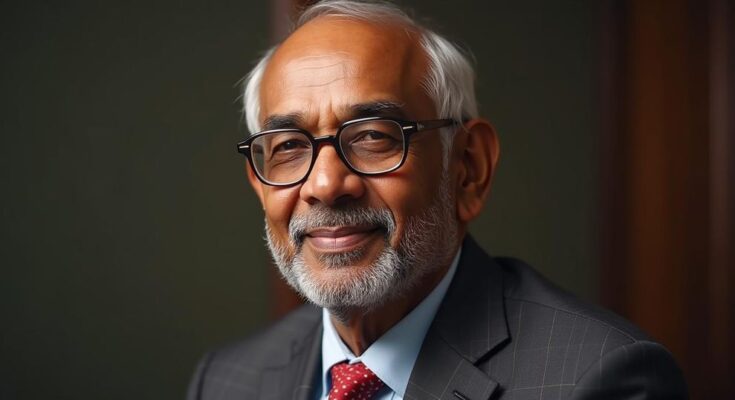GN Saibaba, a prominent human rights activist and former Delhi University professor, died at 58 after a decade in jail due to health complications linked to his imprisonment. Arrested in 2014 on charges of Maoist affiliations, he faced numerous health challenges during his imprisonment and was acquitted in 2022. His life highlighted the struggles of activists in India, as well as issues around human rights and justice.
The recent passing of GN Saibaba, a distinguished human rights activist and former professor, marks a poignant chapter in the story of resilience amid adversity. Saibaba, who had endured a decade of incarceration under the Unlawful Activities (Prevention) Act, succumbed to health complications at the age of 58. He was receiving medical treatment at a private hospital in Hyderabad, grappling with issues related to his gall bladder and pancreas following surgery. His years in prison, marred by allegations of torture, left an indelible mark on his health, as he expressed sorrowfully, “Except for the polio that I’ve had since my childhood, I went to jail without any health issues. But today, I am in front of you though alive, each and every organ failing me.” Though Saibaba was confined to a wheelchair since the tender age of five due to polio, his spirit remained unbroken until his last days. Saibaba’s academic journey as an assistant professor at Delhi University’s Ram Lal Anand College was tragically interrupted when he was arrested in May 2014 on charges of Maoist affiliation. His fight for justice saw a brief respite when he was granted bail on medical grounds by the Bombay High Court in June 2015, followed by another round of imprisonment from December 2015 to April 2016 before the Supreme Court intervened. His conviction in March 2017 for supposed ties to the banned Revolutionary Democratic Front sparked waves of controversy, with protests erupting in response to his imprisonment. Throughout it all, his denials of involvement with any banned organizations stood firm but unheard in the cacophony of legal battles and public outcry. A fervent advocate for human rights, Saibaba’s plight drew the attention of the United Nations, which called for his release on humanitarian grounds. Yet, these pleas fell on deaf ears, further compounding the tragedy of his situation—evident when he was denied permission to attend his mother’s funeral as she succumbed to cancer at 74, an absence that weighed heavily on his heart. After languishing behind bars for ten years, Saibaba was acquitted in October 2022, only to find himself grappling with overpowering health issues. His life’s events remind us of the fortitude displayed by those who challenge systemic injustices, a legacy now cut short by the very circumstances they aimed to combat.
GN Saibaba’s life was a tumultuous journey rife with political struggle, academic commitment, and extraordinary resilience. As a scholar and human rights activist, he devoted his life to advocating for justice in India, often standing at the crossroads of legality and humanity. His arrest in 2014 was emblematic of the broader climate of dissent facing activists in the country. Accusations linking him to Maoist groups under the Unlawful Activities (Prevention) Act revealed a landscape fraught with tension, where ideological struggles often led to draconian sentences. Saibaba’s health deteriorated significantly during his imprisonment, highlighting the disturbing repercussions of a prison system struggling to balance human rights with legal prosecution. His case also intensified scrutiny from global human rights bodies and ignited protests advocating for his release, reflecting a burgeoning awareness of and resistance to state repression.
GN Saibaba’s life and untimely death encapsulate both the struggles faced by human rights activists in India and the broader implications of justice systems that cast long shadows over personal liberties. His resilience remains a beacon for future generations, advocating not just for reform but for a reexamination of how society treats dissent and disability. In a cruel twist of fate, just as he secured his freedom, his physical health—ravaged and fragile—ultimately lost the battle, casting a somber reflection on a life that stood unwavering against oppression.
Original Source: thesouthfirst.com



